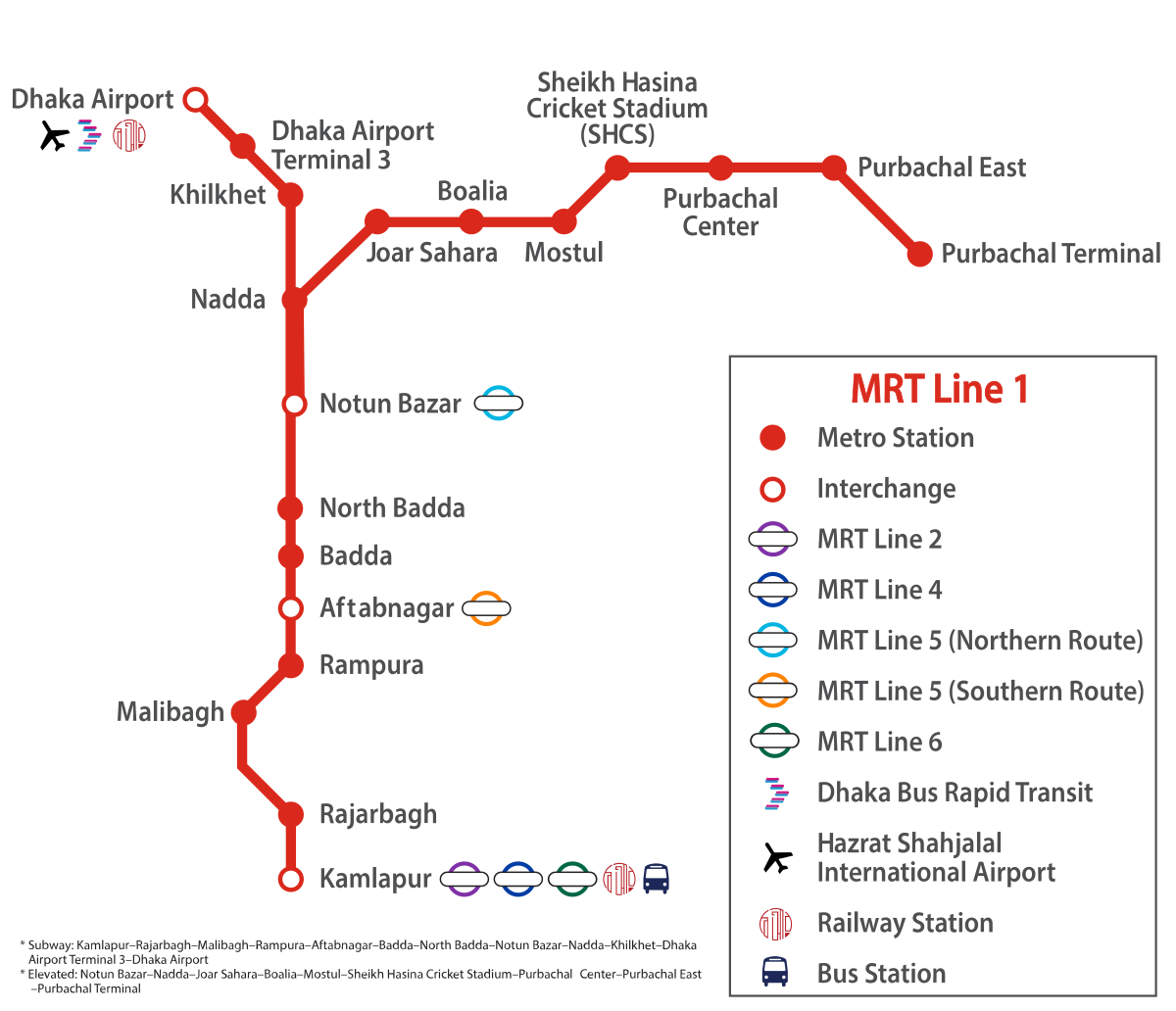Bilal9
ELITE MEMBER

- Joined
- Feb 4, 2014
- Messages
- 26,545
- Reaction score
- 9
- Country
- Location
The project was approved in 2019 with an estimated cost of Tk41,238.55 crore to build a 20km line with 13.5 km of underground and 6.5km of elevated sections
The construction of Mass Rapid Transit (MRT) Line-5 (North) project to build metro rail from Savar's Hemayetpur to Dhaka's Bhatara will begin on the same day as the inauguration of Agargaon-Motijheel section of Line-6.
On 4 November, Prime Minister Sheikh Hasina will travel from Agargaon to Motijheel on metro rail to inaugurate the service of this section and then she will unveil the replica of the inauguration plaque of MRT Line-5 at the Motijheel station concourse.
"We have completed all of the preparations for the inauguration of services at one infrastructure and the inauguration of construction work at another," ABM Amin Ullah Nuri, Secretary, Road Transport and Highways Division.
"There were discussions about holding two programmes at separate places on different days, but the Prime Minister's Office has proposed to hold two programmes on the same day," he told The Business Standard.
Also, Awami League Organising Secretary Mirza Azam said the premier will address an Awami League meeting at the Motijheel station concourse after the inauguration ceremonies.
The commercial operation of metro rail on the Uttara-Agargaon section was inaugurated last December as part of the Tk33,472 crore MRT Line-6 project. The rapid transit system will cover a 20.1km route after it is inaugurated up to Motijheel.
On Friday, the officials of Dhaka Mass Transit Company Limited (DMTCL), MRT Line-6, and Line-5 attended a rehearsal of the opening ceremony at the Agargaon station premises. Meanwhile, all types of leaves for the officials of both the projects have been suspended until 5 November.
MAN Siddique, the managing director of DMTCL, told TBS that the metro rail service in the Agargaon-Motijheel section will be open to the public from the next day of the inauguration.
Limited service will be introduced initially from 8am to 11am every day with the opening of three new stations—Farmgate, Bangladesh Secretariat and Motijheel.
Number of stations and service time will be increased gradually, he added.
It will take 36.4 minutes to travel from Motijheel to Uttara on the 20.1-kilometer metro rail. Currently, it takes 105 minutes to cover this distance by road. When the full service is launched, passengers will save 68.6 minutes or 65.33% of their travel time on this route, sources said.
The government has decided to extend the project to Kamalapur in the future. If the service is launched in Kamalapur next year, the authorities believe that the daily number of passengers on this line will increase by another 100,000.
Even though the initial two dates for the inauguration of the metro rail in the Agargaon-Motijheel section have been postponed, the work on the three stations that are scheduled to start operation has not yet been completed.
The constructions of entry and exit points, footpath development, and escalator installation at each station are in the final stages. Workers said that it would take a few more days to complete the construction of all these facilities.
Hemayetpur-Bhatara line work to begin with land development
Necessary equipment and human resources have been mobilised to begin soil improvement and land development of the depot in Savar's Hemayetpur, said MRT Line-5 Project Director Aftab Hossain Khan.
Under a deal worth Tk1,189 crore, a joint venture of TAO Corporation of Japan and Spectra Engineers Limited of Bangladesh will start developing a 99.25-acre land for the depot following the inauguration, he added.
The project was approved in 2019 with an estimated cost of Tk41,238.55 crore to build a 20km line with 13.5 km of underground and 6.5km of elevated sections.
Nine stations out of 14 are to be established in underground sections and the remaining stations will be in the elevated section.
DMTCL has set a target to complete the project by 2028. The rail is expected to carry around 1.23 million people every day.



